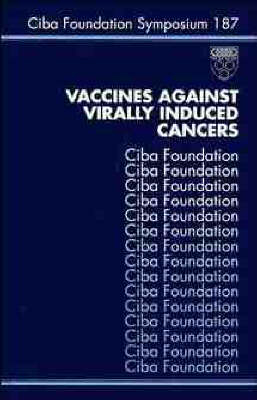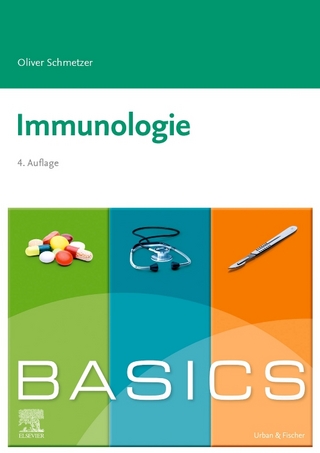
Vaccines Against Virally Induced Cancers
Seiten
1994
John Wiley & Sons Ltd (Verlag)
978-0-471-95026-4 (ISBN)
John Wiley & Sons Ltd (Verlag)
978-0-471-95026-4 (ISBN)
- Titel ist leider vergriffen;
keine Neuauflage - Artikel merken
Exploring the development of vaccines against virally-associated cancer, this volume describes the current status of vaccines and discusses plans for their improvement. It also considers other means of stimulating the host immune system to combat virally-induced cancers.
Vaccines Against Virally Induced Cancers Chairman: Ian Frazer 1994 Viruses are responsible for approximately 15 per cent of human cancers worldwide. Epstein - Barr virus is believed to be associated with Burkitt's lymphoma, a type of nose and throat cancer that kills 40 000 people each year. The human papillomaviruses are associated with cervical and other genital cancers; hepatitis B virus increases the risk of liver cancer 200-fold. An effective vaccine against hepatitis B virus is available, but it has no effect on hepatocellular cancer. Many virally induced cancers express viral gene products, so a cytotoxic T cell response specific for the viral antigen could kill the tumour cells. There is an urgent need for vaccines against these types of cancer. This book describes various strategies to develop such vaccines. In some cases the viral proteins expressed by the tumours are known; these are recognized by T cells in vitro, but viruses have evolved diverse strategies for evading host immune responses. Investigation of these viral defence mechanisms and development of ways to overcome them are major areas of current research.
Immunotherapy by transfer of cytotoxic T lymphocytes stimulated in culture to recognize tumour-specific markers and transfection of tumour cells with genes for cytokines to improve their immunogenicity have both been successful in experimental animals. Another approach using purified virus or viral subunits has led to effective vaccines against animal papillomaviruses. It is hoped that versions of all these vaccines for use in humans will be available in the near future. Other Ciba Foundation Symposia: No. 141 Metastasis Chairman: I J Fidler 1988 ISBN 0 471 91513 0 No. 186 Antimicrobial peptides Chairman: Hans G Boman 1994 ISBN 0 471 95025 4 No. 189 Cell adhesion and human disease Chairman: Richard O Hynes 1995 ISBN 0 471 95279 6
Vaccines Against Virally Induced Cancers Chairman: Ian Frazer 1994 Viruses are responsible for approximately 15 per cent of human cancers worldwide. Epstein - Barr virus is believed to be associated with Burkitt's lymphoma, a type of nose and throat cancer that kills 40 000 people each year. The human papillomaviruses are associated with cervical and other genital cancers; hepatitis B virus increases the risk of liver cancer 200-fold. An effective vaccine against hepatitis B virus is available, but it has no effect on hepatocellular cancer. Many virally induced cancers express viral gene products, so a cytotoxic T cell response specific for the viral antigen could kill the tumour cells. There is an urgent need for vaccines against these types of cancer. This book describes various strategies to develop such vaccines. In some cases the viral proteins expressed by the tumours are known; these are recognized by T cells in vitro, but viruses have evolved diverse strategies for evading host immune responses. Investigation of these viral defence mechanisms and development of ways to overcome them are major areas of current research.
Immunotherapy by transfer of cytotoxic T lymphocytes stimulated in culture to recognize tumour-specific markers and transfection of tumour cells with genes for cytokines to improve their immunogenicity have both been successful in experimental animals. Another approach using purified virus or viral subunits has led to effective vaccines against animal papillomaviruses. It is hoped that versions of all these vaccines for use in humans will be available in the near future. Other Ciba Foundation Symposia: No. 141 Metastasis Chairman: I J Fidler 1988 ISBN 0 471 91513 0 No. 186 Antimicrobial peptides Chairman: Hans G Boman 1994 ISBN 0 471 95025 4 No. 189 Cell adhesion and human disease Chairman: Richard O Hynes 1995 ISBN 0 471 95279 6
Partial table of contents: Sterile Immunity. Human T Cell Lymphotropic Virus: Necessity for and Feasibility of a Vaccine. Hepatitis B Virus Infection, the Immune Response and Hepatocellular Carcinoma. Assembly and Transport of Class I MHC-Peptide Complexes. Propagation of Mouse and Human T Cells with Defined Antigen Specificity and Function. Bone Marrow-Derived Cells Present MHC Class I-Restricted Tumour Antigens in Priming of Antitumour Immune Responses. Evasion of Host Immune Responses by Tumours and Viruses.
| Erscheint lt. Verlag | 22.11.1994 |
|---|---|
| Reihe/Serie | Ciba Foundation Symposium ; No. 187 |
| Zusatzinfo | illustrations |
| Verlagsort | Chichester |
| Sprache | englisch |
| Maße | 154 x 235 mm |
| Gewicht | 580 g |
| Themenwelt | Medizin / Pharmazie ► Medizinische Fachgebiete ► Mikrobiologie / Infektologie / Reisemedizin |
| Medizin / Pharmazie ► Medizinische Fachgebiete ► Onkologie | |
| Studium ► Querschnittsbereiche ► Infektiologie / Immunologie | |
| ISBN-10 | 0-471-95026-2 / 0471950262 |
| ISBN-13 | 978-0-471-95026-4 / 9780471950264 |
| Zustand | Neuware |
| Haben Sie eine Frage zum Produkt? |
Mehr entdecken
aus dem Bereich
aus dem Bereich
Buch | Softcover (2023)
Lehmanns Media (Verlag)
19,95 €


